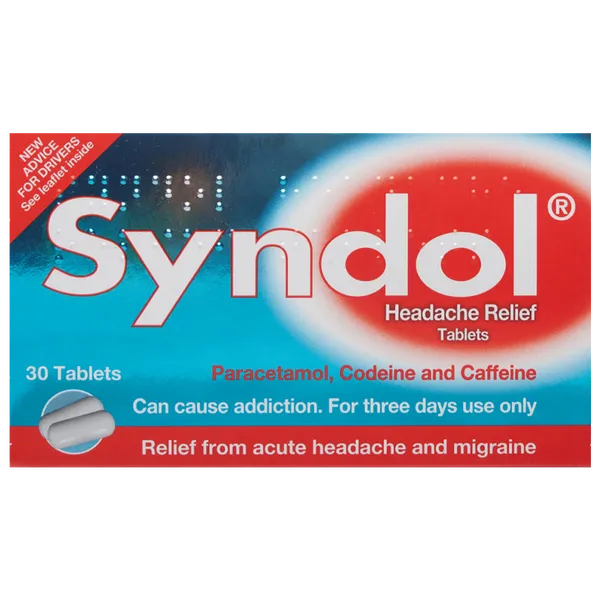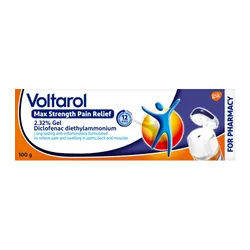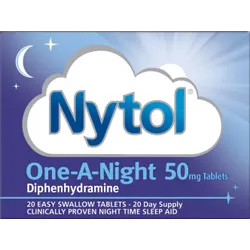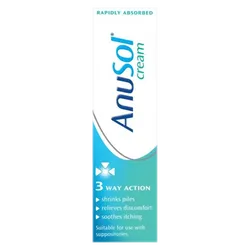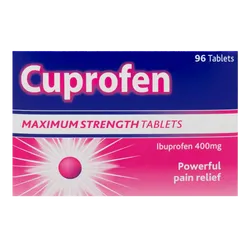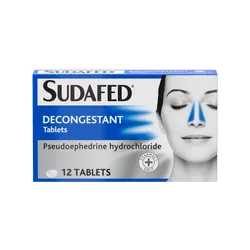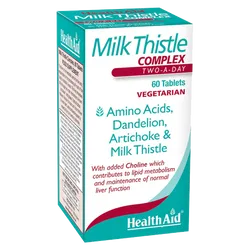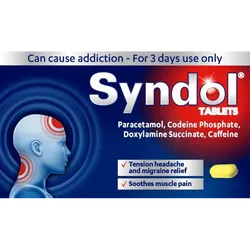You should only take this product for a maximum of three days at a time. This medicine contains codeine which can cause addiction if you take it continuously for more than three days. This can give you withdrawal symptoms from the medicine when you stop taking it. If you need to take it for longer than three days you should see your doctor or pharmacist for advice.
If you take a painkiller for headaches for more than three days it can make them worse.
Do not take this medicine if you:
- are allergic to paracetamol, codeine phosphate, caffeine or any of the other ingredients
- have acute asthma
- have severe respiratory disease
- suffer from alcoholism
- have had recent bile duct surgery (e.g. gall stones)
- suffer from paralytic ileus, where your bowel has ceased to function
- have recently had a head injury or raised pressure in the skull.
Please see your doctor or pharmacist before taking this medicine if you:
- suffer from kidney or liver problems, including alcoholic liver disease
- have an enlarged prostate gland
- suffer from low blood pressure
- suffer from inflammatory or obstructive bowel disorders such as constipation, diarrhoea or bloating
- suffer from an underactive thyroid gland
- are elderly or debilitated.
If you are taking any of the following medicines please see your doctor:
- medicines to treat high cholesterol levels which reduce the amount of fat in the blood such as colestyramine
- medicines to control feeling sick or being sick such as metoclopramide or domperidone
- medicines called anti-coagulants, which are used to thin the blood such as warfarin or other coumarins - you may take occasional doses of paracetamol but should consult your doctor if you need to take it on a regular basis
- cimetidine, a medicine to treat heartburn or peptic ulcers
- tricyclic antidepressants, which are medicines used to treat depression e.g. amitriptyline and imipramine
- antipsychotic medicines used to treat mental illness e.g. chlorpromazine and risperidone
- quinidine or mexiletine, used to treat heart problems
- antidepressant drugs called monoamine oxidase inhibitors (MAOI’s) - these are medicines such as phenelzine and moclobemide
- the antibiotic chloramphenicol
- other CNS depressant drugs such as sodium oxybate
- barbiturates and benzodiazepines which are medicines to calm you down or to help you sleep (e.g. mephobarbital, pentobarbital, diazepam and alprazolam).
- medicines for diarrhoea and tummy cramps as taking these at the same time as Syndol Headache Relief Tablets may make you constipated.
- medicines such as atropine, procyclidene, or hyoscine which are used to treat problems with gut movement. Taking these at the same time as Syndol Headache Relief Tablets may make you severely constipated and may make it difficult for you to pass urine.
- Some antihistamines which may be used in cough/cold remedies and anti-allergy products. Taking these at the same time as Syndol Headache Relief Tablets may make you severely constipated and may make it difficult for you to pass urine.
- naltrexone – used in the treatment of drug dependence.
Do not take anything else containing paracetamol while taking this medicine.
Pregnancy and breast-feeding
Please see your doctor or pharmacist before taking this medicine if you are pregnant.
Usually it is safe to take Syndol Headache Relief Tablets while breast-feeding as the levels of the active ingredients of this medicine in breast milk are too low to cause your baby any problems. However, some women who are at increased risk of developing side effects at any dose may have higher levels in their breast milk.
If any of the following side effects develop in you or your baby, stop taking this medicine and seek immediate medical advice; feeling sick, vomiting, constipation, decreased or lack of appetite, feeling tired or sleeping for longer than normal, and shallow or slow breathing.
Other important information:
Do not drink alcohol (beer, wine, spirits etc) while taking this product.
Driving and using machines:
These tablets might cause drowsiness. If you are affected, do not drive or operate machinery.
The medicine can affect your ability to drive as it may make you sleepy or dizzy.
- Do not drive while taking this medicine until you know how it affects you.
- It may be an offence to drive when taking this medicine.
However, you would not be committing an offence if:
- The medicine has been taken to treat a medical or dental problem and
- You have taken it according to the information provided with the medicine and;
- It was not affecting your ability to drive safely
Talk to your doctor or pharmacist if you are not sure whether it is safe for you to drive while taking this medicine.
Possible side effects
Some people may have side-effects when taking this medicine. If you have any unwanted side effects you should seek advice from your doctor, pharmacist or other healthcare professional.
STOP TAKING these tablets and contact your doctor immediately if you develop any of the following serious side effects at any time while taking your medicine:
- rash, itching or swollen red areas of the skin or swelling of the face.
- unexplained or unusual bruising or bleeding
- fever and infections.
- an unusually low heart rate
- low blood pressure
- hypothermia.
- hallucinations.
- restricted breathing
- abdominal or back pain.
- constipation, stomach cramps, feeling sick and vomiting.
- dizziness, light-headedness, disorientation and drowsiness
- headache, tremor, nervousness, confusion, irritability, restlessness, anxiety and mood changes
- vertigo.
- an increased awareness of your heart beat
- a head rush or dizzy spells
- an increase in your heart rate or sweating.
- difficulty in passing water, needing to pass urine more often, or passing less urine than usual
- decreased libido or potency
- muscle rigidity
- a dry mouth
- your eye’s pupil may become smaller
- blurred or double vision
- nightmares.
How do I know if I am addicted?
If you take the medicine according to the instructions on the pack it is unlikely that you will become addicted to the medicine.
However, if the following apply to you it is important that you talk to your doctor:
- You need to take the medicine for longer periods of time.
- You need to take more than the recommended dose.
- When you stop taking the medicine you feel very unwell but you feel better if you start taking the medicine again.
Reporting of side effects
If you get any side effects, talk to your doctor, pharmacist or nurse. This includes any possible side effects not listed in this leaflet.
You can also report side effects directly via the Yellow Card Scheme at: www.mhra.gov.uk/yellowcard
By reporting side effects you can help provide more information on the safety of this medicine.
